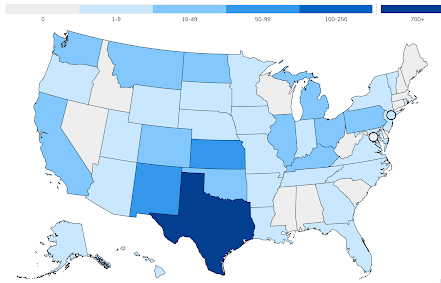“The most effective way to prevent the spread of measles is the M.M.R. vaccine,” he added, referring to the measles, mumps and rubella vaccine.At the same time, Mr. Kennedy has stopped short of recommending universal vaccination in communities where the virus is not spreading.And he has ordered a re-examination of whether the vaccine causes autism, a claim long ago debunked by research, to be conducted by a well-known vaccine skeptic.
And as of this morning:
In a statement to NPR, Health and Human Services Department spokesperson Andrew Nixon said, "CDC continues to recommend MMR vaccines as the best way to protect against measles. The decision to vaccinate is a personal one." [emphasis added]
According to the World Health Organization, "herd immunity" for measles requires at least a 95% immunization rate, which is a standard only 11 states currently achieve.
The lower the rate falls below 95%, the greater the risk to the community of an outbreak. Of the 40 remaining jurisdictions, 12 states have a vaccination rate below 90%.
One of the contributing factors to the low rate of vaccination is permissive state laws that allow parents to opt their kids out of compulsory-vaccination for public-school enrollment. All states require some vaccinations, including the MMR (measles, mumps, and rubella) vaccine. But only 5 states limit parental exemptions to medical reasons. All 46 remaining jurisdictions add non-medical reasons for exemptions, including: religious, personal belief, or both.
Source: National Conference of State Legislatures
As expected, there is an almost-perfect correlation between these two maps: the vaccination rates >94% tend to be in the states that limit their vaccination exemptions to individual medical indications.
The justification for non-medical exemptions is primarily -- if not entirely -- political, not legal. Although the issue has divided lower courts, one COVID-era Supreme Court opinion provides support for states that exclude religious reasons for vaccine exemptions as long as the state requirement is applied equally to religious and secular settings. Indeed, cases going back to the military draft during the Vietnam War -- cases that struggled to define and apply the draft law's religious exemption -- observed that Congress was not required to include a religious exemption at all (but when it does, it must do so without favoring one set of religious beliefs over others).




No comments:
Post a Comment